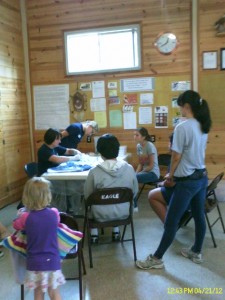OPINION: W.H. Shipman vs. the Cat Ladies
“Women and cats will do as they please, and men and dogs should relax and get used to the idea.”
-Robert A. Heinlen
In the rural plains of Puna, nestled against a neighboring forest, there lies a little clearing where an assortment of cats and chickens scratch out a living.
Hold your nose for a moment, and the setting is almost idyllic, if you can ignore the surrounding rubbish and scrap metal.
This odd crossroads of rural and urban life is the Keaau Transfer Station (aka “The Dump”), and its furry/feathered residents have been given an ultimatum.
Landowner W.H. Shipman has informed the County of Hawaii, which leases the property, that all creatures great and small have got to go.
Getting the boot along side of them will be a group of volunteers that has been feeding the feral animals for several years now.
Known as Hui Pono Holoholona, the non-profit group helps to care for several dozen cats, many of whom had previously been abandoned at the site. Volunteers also feed feral chickens and attempt to humanely trap wild pigs frequenting the transfer station.
But HPH’s members are especially passionate about the well-being of area felines. The volunteers not only feed the creatures, but attempt to capture and then neuter/spay the animals at their own expense, providing vaccinations and ultimately relocating them.
HPH President Frannie Pueo has reportedly attempted to meet with W.H. Shipman President Bill Walter, who she claims has refused to speak to the volunteer group.
Walter is the great-grandson of company founder William Shipman. The company currently owns about 17,000 acres in the Puna District, leasing a mixture of commercial and agricultural land.
Why exactly Shipman is intent on kicking out the “Cat Ladies” as some have come to call them is unclear, although the company has claimed that prohibiting the feeding of feral creatures is standard policy.
Shipman Director of Development Kimo Lee has reportedly stated that the company wants no feral animal presence whatsoever on any of its properties, rats presumably included.
Unfortunately for Shipman, cats and chickens can’t read “keep out” signs. And absent a few felines, rats aren’t likely to bypass a garden of refuse due to company policy.
The feral cats also pre-date the arrival of their caregivers, and people aren’t likely to stop abandoning them at that site.
For better or worse, this is kitty country, and where stray cats roam, there will be romance. That’s a nice way of saying that cats can breed like… never mind.
The ultimate mystery is what threat the caregivers and their critters represent to Shipman.
Vast profits don’t seem to be at stake here, as the county reportedly pays Shipman just over $200 per month to use the site.
Are the felines a health menace? Rabies obviously isn’t an issue, and Pueo has pointed out that the feral felines probably do more than their share of keeping the rat population down.
Short of a costly and continuous trap/kill operation, the cat presence at the transfer station isn’t likely to disappear.
Could Shipman scratch its current plans and work with Hui Pono Holoholona as productive, long-term partners? Could the two groups form a working relationship to relocate abandoned animals? That depends on how the two sides react to each other moving forward.
HPH has been circulating a petition that urges Shipman to change its lease provisions, but it’s unclear whether the company intends to change its policy. The Department of Environmental Management recently obtained a temporary reprieve for the volunteer feeders, who now have until September to relocate the feral creatures.
Big Island Now reached out to Shipman’s director of development for comment. No response was received as of press time.










